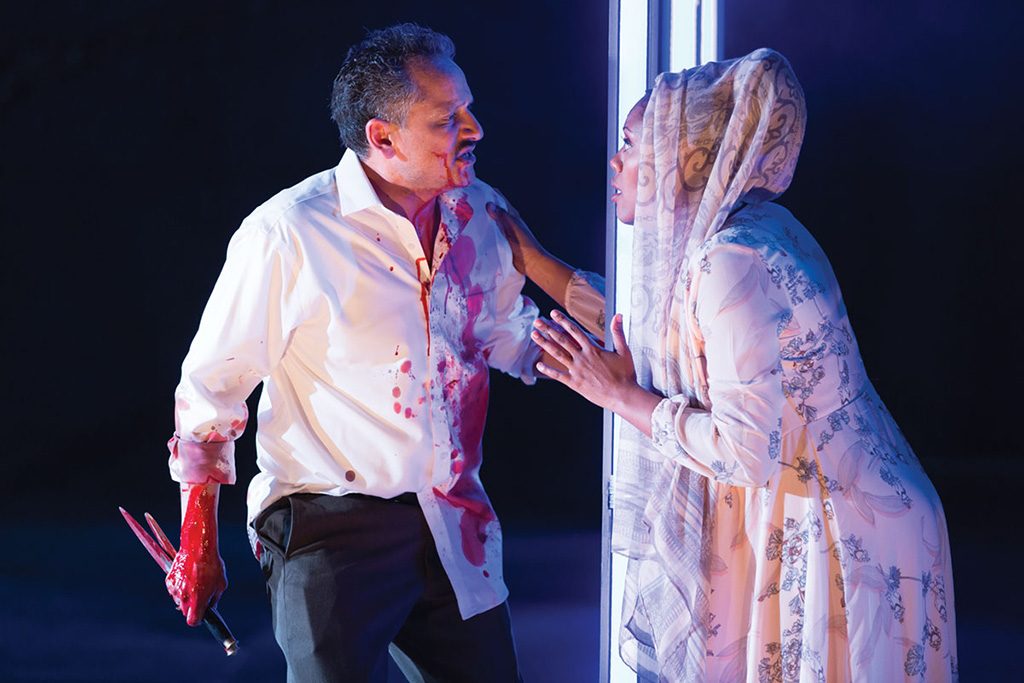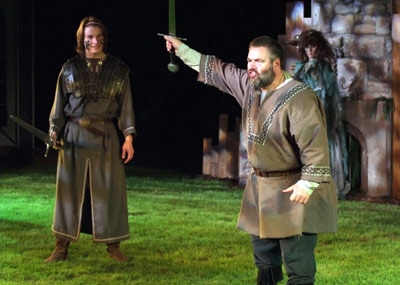

Peter Brook, whose 1971 film version of “King Lear” is a landmark experiment in Shakespearean moviemaking, expressed this point with more exactness when he observed that “the problem of filming Shakespeare is one of finding ways of shifting gears, styles and conventions as lightly and deftly on the screen as within the mental process reflected by Elizabethan blank verse onto the screen of the mind.” In answering the question of which to prioritize, word or image, a director is forced to choose between contrasting artistic grammars. The critical question that must be worked out when adapting Shakespeare to the screen is how language bursting with music and metaphor can be integrated into a more visually oriented medium.
#MACBETH PLAY MOVIE#
The cumbersome brogues and hammy villainous flourishes of the cast nearly upend the interior gravity of Welles’ star turn in a movie that adventurously takes many of its visual and sound cues from horror films.

Welles’ “Macbeth,” while historically important for its bold auteur stamp, is similarly held back by theatrical fustian and bombast.

Those wicked crows are never out of sight for long. It’s notable that when he wishes to consult with the witches after he’s king, they come directly to him. In Shakespeare’s play, the occult is an expression of what already inheres in the protagonist’s psychology. He broods on the prophecy that he will one day be king, the prospect awakening what is clearly a deep-seated desire. Washington’s Macbeth is obviously susceptible to temptation. (Indeed, the witches transform themselves into birds, a feat made more plausible by Hunter’s contortionist skills.) (Polanski’s film, by comparison, shows these Scots as debauched with battlefield blood.) The weird sisters, incarnated in the mesmerizing, smoky-voiced performance art of Kathryn Hunter, seem as much a fact of the natural world as the crows circling the gunmetal sky. War, the crucial context from which the evil in the play naturally emerges, is given short shrift. McDormand’s Lady Macbeth pushes her husband toward a last gasp of greatness as much to fend off her own fears of mortality as his own. Macbeth laments that the crown he has nefariously won is “fruitless.” Death is palpable in Washington’s weary stare. In casting the Macbeths with actors in their 60s, he makes the childless couple’s story less about ambition than legacy.
#MACBETH PLAY FULL#
As a reading of the play, Coen’s film, while circumscribed, is full of provocative ideas.


 0 kommentar(er)
0 kommentar(er)
